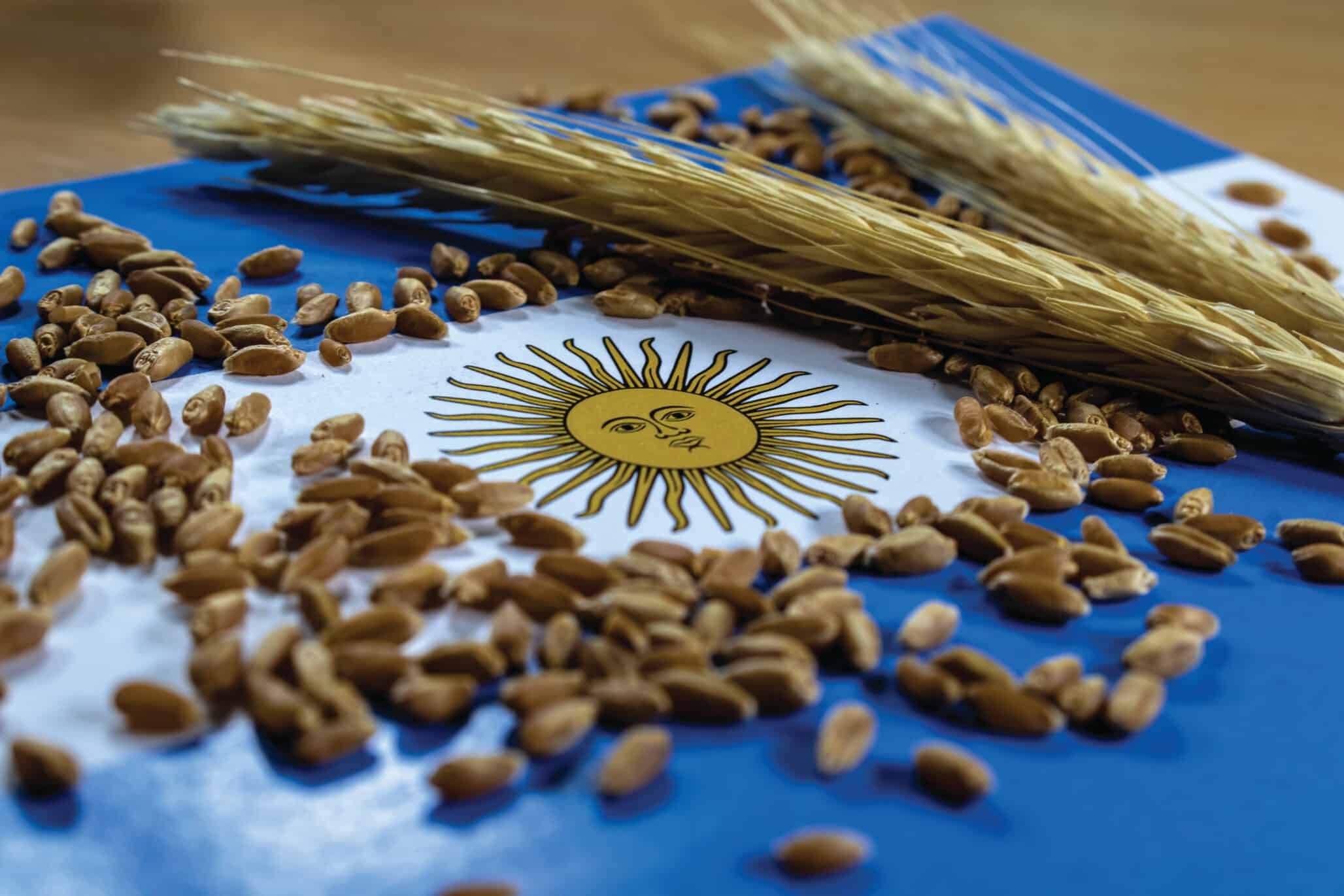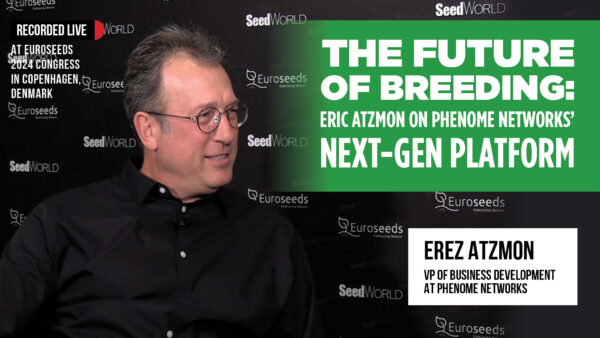Everyone is very familiar with the form of public and political debate that is brought into focus time and time again when we have technical developments in agricultural products and seeds. It goes like this: the subjects are rapidly escalated into the political and regulatory arena, ostensibly based on the ‘precautionary principle’ and the debate is then typified by a battle between opposing opinions regarding safety, environmental impact and regulation and the actors with the greatest political influence win the day. Political influence, of course, rarely sits with the private sector because our profit motive inherently creates a potential conflict of interest that takes significant political bravery to trust us to have any other motivations.
What is fair?
So, from the side of business and science-based innovation, our perception is that we frequently lose these arguments unfairly. Fairness depends upon your point of view, however, what is certain is that innovations are not available to European agriculture that are being used in other regions of the world. We see ever increasing risks of this trend continuing towards the next generation of innovations in plants using genome editing methods and whatever else might be invented after that. It should come as no surprise that I see that as an overall negative outcome for the European economy, citizens and most importantly the sustainable agricultural environment. These are additional considerations on top of economic goals in business.
[tweetshare tweet=”Innovations are not available to European agriculture that are being used in other regions of the world” username=”EuropeanSeed”]
Today’s process as typified by the recent ECJ ruling in July 2018, leads to R&D investment being reduced as businesses see more risk rather than opportunity. Vast amounts of time, resources and human energy are consumed from all sides of the debate with outcomes of blocking and banning rather than joining forces to do the best that we can for sustainable agriculture. And so, I would like to take this opportunity to give you my personal reflections as outgoing ESA President on how we might find a new way to conduct ourselves as a sector that may break this cycle of negativity for the good of all.
With debate focussed on the next innovation of genome editing we are at something of a pivotal moment where society can choose whether to adopt a technology or not. And of course, there are opposing views based on opinions and premises that are firmly entrenched. Is it possible to make progress in such a sensitive area of technology applications in living things that are personal to individuals as part of our food system?
Learn from history
There are examples where strongly opposed groups of people have reached sometimes surprising consensus. I grew up in the 1970s in the UK which was a time when we frequently experienced terrorist bomb threats and tragedies coming from the conflicts in Northern Ireland. It was part of life, an insolvable problem with deep historical roots and deeply held beliefs and no small amount of hatred in the mix. It was thought that nothing could be done to break the cycle of violence. But in 1998 a few weeks before my first child was born, there was the Northern Ireland referendum which accepted what is now known as the Good Friday agreement with a yes vote >70%! We saw former enemies respectfully shaking hands.
My point is not to trivialise the Northern Ireland peace process by drawing analogy to seeds issues but to examine what we can learn from this extremely serious example of opponents finding (sometimes uneasy) consensus.
Did the two sides change their opinions? Fundamentally no. Is there still tension? Yes, and we can see that again in the discussions around borders that are raised by Brexit and occasional incidents of unrest. However, a majority of people could see after so many years of on and off negotiation, mediation, interspersed with ceasefires and atrocities that there was a better way than focussing on hatred, mistrust and violence.
High risk of failure
Staying with the status quo of opposing camps with regard to breeding innovation is really not a risk-free scenario for society. Each missed opportunity also misses the future opportunities that would be built on it. However, as yet, that does not appear to be the consensus despite significantly improved understanding of climate change, population growth and sustainable agricultural practice. It seems only rarely acknowledged that the current state of affairs of slow innovation in plants and extreme precaution is in fact creating an extremely high risk of failure to address both environmental and social harm from inadequate sustainable agricultural productivity. The regulators and courts speak of the ‘risks’ from transgenic GMO. Doesn’t nearly 30 years of use outside the EU show that such risks are being over estimated? Complacency is easy when the supermarket shelves are stacked full. It should not be forgotten that only as recently as our parents’ generation people’s experience of food security in Europe was very different.
Listen to the opposition
Perhaps there is something else at play for the ‘anti’ pressure groups and we must listen harder to their opposition to understand and respond to it. Maybe small organic farmers feel that their way of life is threatened. They talk of ‘monster’ companies, ‘dangerous’ GMOs, intellectual property ‘privatising’ our source of food, patenting ‘nature’, loss of food ‘sovereignty’, ‘industrial’ farming to quote a few. These are very effective messages, easy to understand and clear evidence of people feeling disempowered and fearful of exploitation by faceless powerful corporates.
For me it is actually offensive to be challenged as not caring for the environment when the seed sector has continually delivered more from less, improved sustainability and also is innovating products that, whilst market driven, are fully aligned with societal goals. Exporting European food demand to more vulnerable regions and economies because of misplaced fears restricting domestic productivity is surely a morally questionable result of today’s EU policy.
[tweetshare tweet=”Exporting European food demand to more vulnerable regions & economies because of misplaced fears restricting domestic productivity is surely a morally questionable result of today’s EU policy.” username=”EuropeanSeed”]
Can we not address these fears? Small farmers, organic farmers are also our valued customers, they must be free to choose how much ‘industrial’ approach they take to their farming. However, they are also private entrepreneurs and so they must also be economically viable and respect sustainable agriculture goals. Companies have no strategic business goal that wishes the end of small family farms, rural social cohesion and premium opportunities for small farmers such as organic branding. So we can help them, with the same respectful approach to how we serve all of our customers then maybe we are not monsters but partners.
We will never agree that plant breeding innovation should be a public-sector activity as history shows that without seed marketing regulations and intellectual property frameworks, markets fail. People go hungry and stable peaceful economic development is halted. So, let’s focus on what we can do together rather than what we can’t do. Abandon entrenched outdated thinking.
[tweetshare tweet=”History shows that without seed marketing regulations and intellectual property frameworks, markets fail.” username=”EuropeanSeed”]
From our perspective, it is obvious that we need to gain societal understanding of the basic human need for plant breeding innovation for our sustainable wellbeing on planet earth and this is most effectively delivered by a market driven private sector.
The right to choose
For many people, this would be a huge step in change of outlook and as such will never be forced on people by regulators against their will. Let’s hope it will not be forced on people by famine or war as it was in the past in Europe and is still the case in many regions of the world where market failure for plant innovation still exists.
Hard line anti-corporate, anti-science believers have a right to choose to live according to their ideals! It doesn’t appear to be a winning formula to belittle someone’s life philosophy and tell them to be more rational (in case any of us has tried that approach). If we continue to escalate conflict, positions just become more entrenched. People with these opinions, however, do not have a right to force their beliefs on others and also have an obligation to respect others’ points of view who see the slow uptake of innovation as a material risk of harm to citizens and the environment. Whilst we live in times of relative peace and plenty, it therefore is our responsibility as the innovators to be persuasive and reach out to others.
What we have proved to our frustration as science based organisations is that providing ever more detailed legal argumentation and technical scientific explanations has proven time after time to be ineffective in influencing opinion and even has been directly counterproductive in terms of gaining trust.
Break the cycle of conflict
To break the cycle of conflict, we must engage and explain with activists and as soon as possible. These will be uncomfortable conversations, but I am convinced that in directly addressing the issues they raise, we do indeed have significant common ground. ‘Sustainability’, climate change response, human health, nutrition, reducing exploitation of child labour and oppression of women in agriculture. Trustful and responsible corporate behaviour. Who does not want these things? If we are to address these topics with our sceptical stakeholders alongside us, we need some bravery and we must initiate the direct conversation.

Our corporate actions and products are a rare example of positive market forces to deliver on a social policy agenda to address the challenges of sustainability, food security and climate change mitigation. This is very special. However, with our underlying profit motive there is an obvious vested interest and by definition is not to be fully trusted, but then neither is activism claiming the basis of environmental safety when the real motive is a mistrust of big business.
Only through a demonstrable change in our corporate behaviour can we hope to claim the ethical high ground and stop being pushed to be continually defensive about our work. We can also do that by describing products that demonstrate public good in a way that is easier to understand than productive agriculture in general.
Corporate behaviour
Corporate behaviour is also challenged in the way we handle intellectual property. We are challenged that IP brings with it a risk of abusive and exploitative monopoly that is not in the public interest. Here again we must address that directly. Regulating against innovation to control the balance of interests between IP owners and users is completely off target and has the collateral damage coming from reducing innovation in society. IP is essential to provide a market model to risk capital investment in innovation, however, there must be balance for the system to work. Here, we need to demonstrate social responsibility as IP owners. Licences need to be accessible, terms fair, and not blocking access to genetic diversity.
To engage in this way is not without risk. We have to ‘walk the talk’. To be trusted we must be trustful. Every corporate transgression, be it misleading automotive emissions or abuse of personal digital data, we all lose confidence and trust in corporates with every scandal and each one makes it ever more important to show why we in the seed sector are different and canbe trusted.
Laying the foundations
There is therefore a question that is consequent on all this. What are we prepared to risk and pay to get the trust, recognition and social license to operate? Our entrepreneurial business model in plants and seeds is founded on continual innovation delivering customers ‘people’s needs. If innovation is rejected by the political norm then it is our own failure and not the fault of those who question us. The consequences of failure to society need to be recognised to be far wider than mere business failure. It would be a Pyrrhic victory for NGOs if seed companies with sufficient scale and diversity to deliver continual improvement in production and disease resistance were regulated out of existence and society loses one of the few means that exists today to respond to the global challenges facing sustainable food production.
During the last years, ESA has focussed on laying the foundations for a new approach to the political conversation. You have seen at our most recent ESA annual meetings the Noleppa report and the engagement of modern communications advisors and expanding the Brussels team, #embracing nature in social media to build capacity to communicate positively. Now we need to build on the growing momentum that we have started and look for even more new solutions
It is important to note that common purpose is not a one way street, whilst we may need to initiate and drive constructive dialog, the other parties must also behave in a more trustful and open way and make some difficult adjustments to accept the role of business and enterprise in improving sustainable agriculture.
These ideas are of course no blueprint and, clearly, business decisions on how to act need to carefully balance risk and opportunity and plan change in a business responsible way. However, in the end, for me, the direction of travel is clear, and all these topics must be on the agendas of boardrooms across Europe to consider exactly what companies and their seed associations must do differently. I for one remain confident that the ‘big picture’ benefit of genetic innovation will be seen through the different political agendas if we act correctly. We cannot force others to do the same but we can behave in a way that more clearly demonstrates our high ethical standards.
For policy makers, the clear challenge is to balance incentivising private R&D whilst facilitating public recognition of the balance of benefits that this has delivered in the past and why it is essential for the future. It is our role as the seed sector to enable an easier political environment for policy makers to meet that challenge.
And my message to the interested public is simply not to continue to beat people over the head with more data and detailed legal definitions. I say, LOOK AT US! THIS IS WHAT WE DO! And it is FANTASTICALLY beneficial. We have NOTHING to hide and we are on your side as concerned citizens. And (only if you ask) I can also explain the science.












